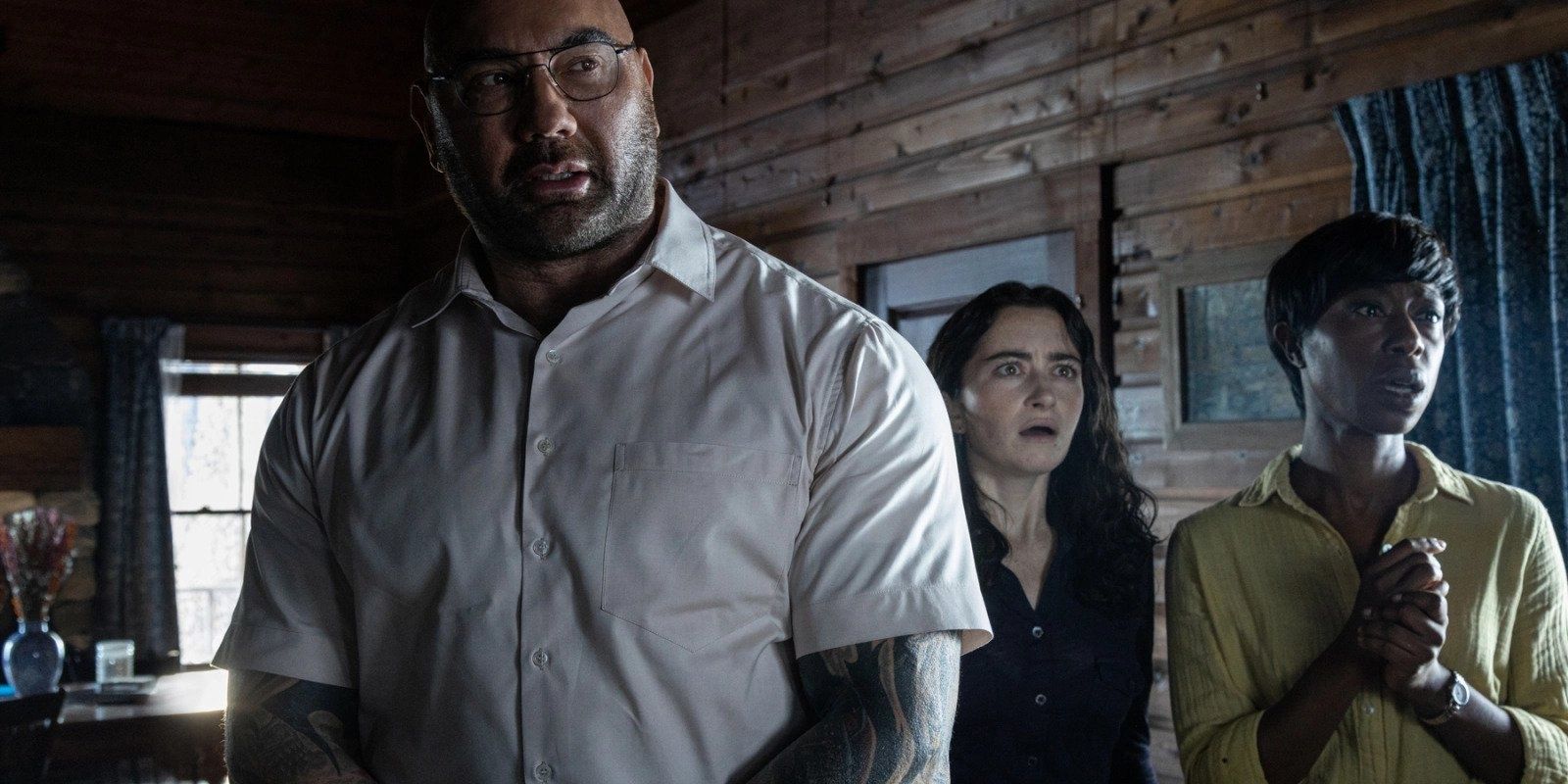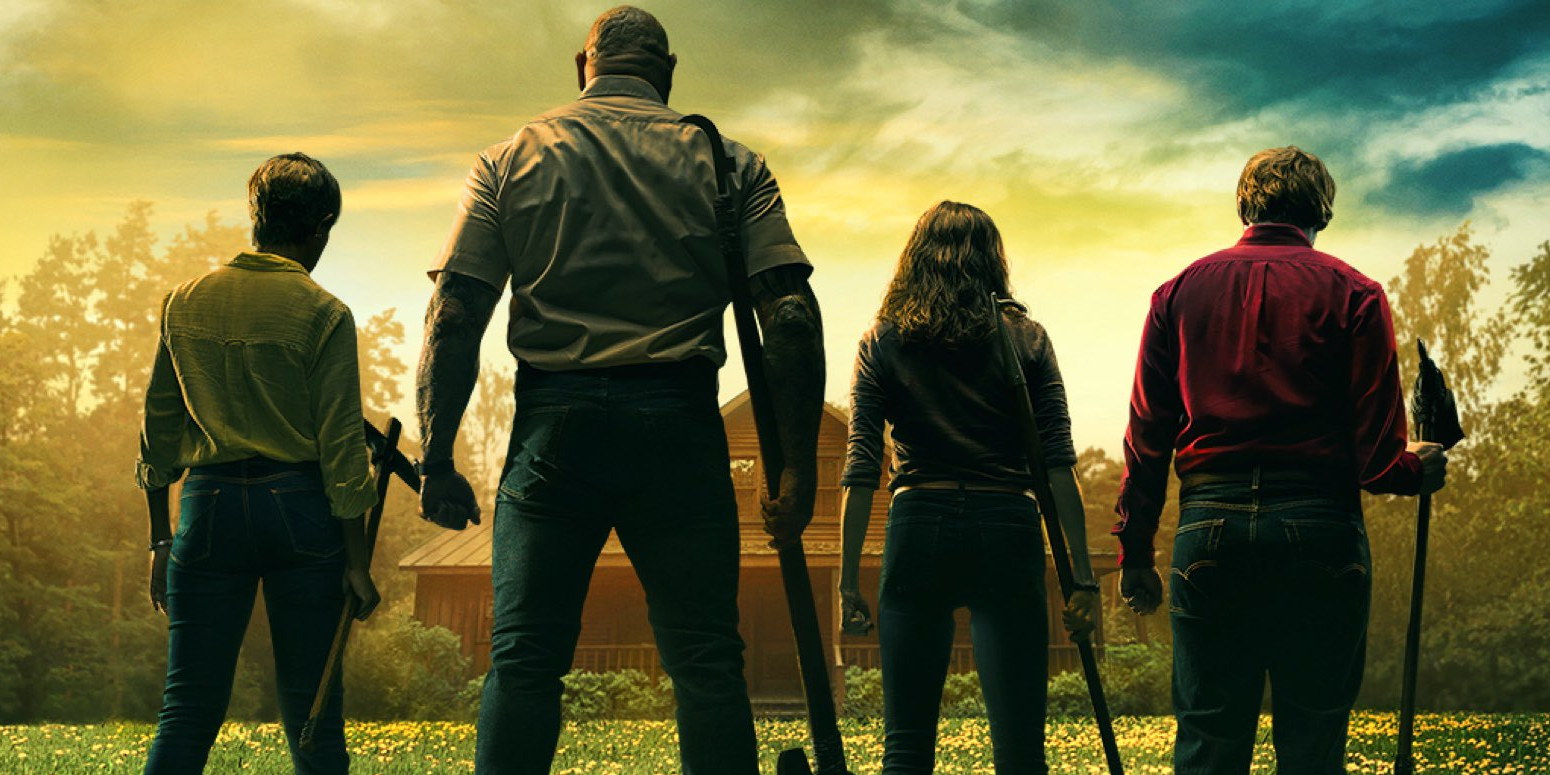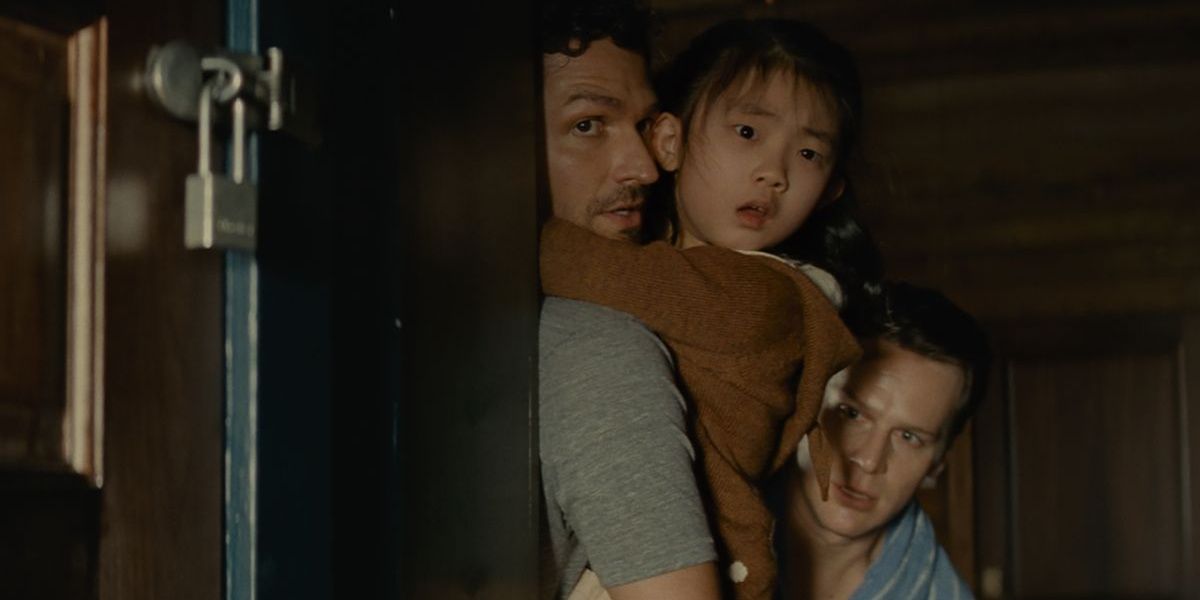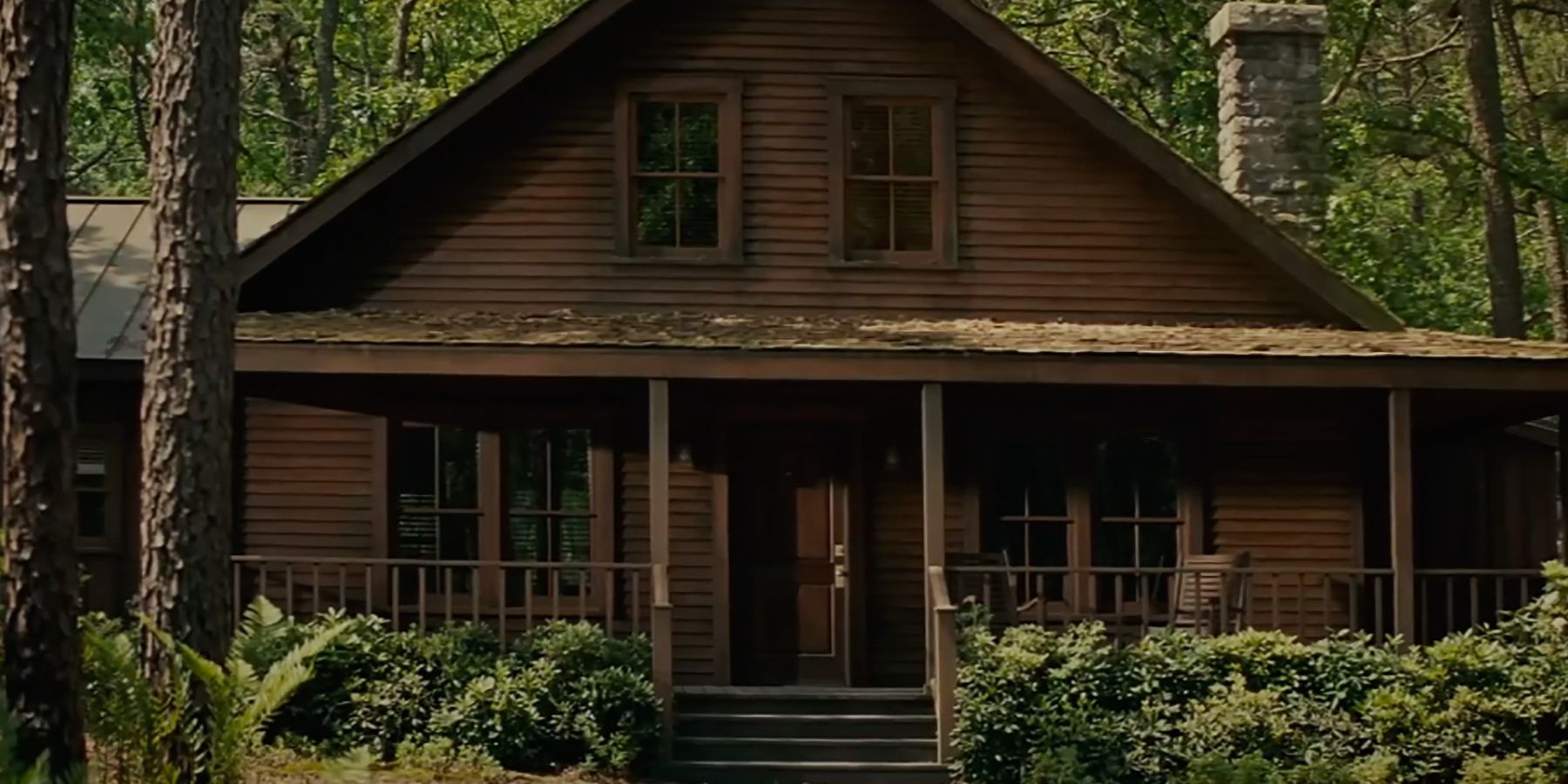The following article contains spoilers for Knock at the Cabin and Cabin at the End of the World.
M. Night Shyamalan's body of work might be the most frequently and easily criticized of any artist working today. We've all heard a million versions of the same gag, the same series of jokes at his expense while reflecting on his previous successes. He's moved on to a phase of his career marked primarily by adaptations, but as Knock at the Cabin demonstrates, he takes an unusual method.
Paul G. Tremblay's 2018 horror novel Cabin at the End of the World was immediately celebrated for its gripping atmosphere, complex characters, and nightmarish scenario. Tremblay signed a deal with FilmNation, inking the deal that would lead to the first film adaptation of his work. Two years later, M. Night Shyamalan signed on as director and, critically, rewrote the script.
Cabin at the End of the World and Knock at the Cabin start the same way. In fact, the first two acts of the film follow the novel with shocking specificity. Pages of dialogue are copied and pasted, meticulously maintained character interactions and little physical ticks come across perfectly. Those who read the book will have moments of seeing their imagined version of the story fully realized on the big screen. The cinematography is great, the music is solid, and the acting is absolutely stellar. It feels like a good adaptation of a great novel until it doesn't.
The premise of both works is simple. A married couple, Andrew and Eric, and their daughter, Wen, are on vacation in a remote cabin when four strangers kick in the door and demand they make a choice. The family must willingly choose to sacrifice one of their own. If they refuse, the strangers explain, the world will come to an end. The majority of both works take place in the titular cabin, but the strangers do offer evidence to support their claims. At specific times, they demand the family make a choice. They refuse, so the strangers butcher one of their own. They then turn on the TV and demonstrate the apocalyptic events in news reports. There's evidence to support the apocalyptic claims behind the strangers' threats, but crucially, there's also room for doubt. That's where Shyamalan's take on the story changes.
Andrew, one of the victims, offers skepticism at every turn. He argues against the footage, comes up with elaborate scenarios in which the strangers could've seen the events coming, and dismantles their spiritual inspiration every chance he gets. He's a fully realized character, but he's also a mouthpiece for a portion of the audience. In Cabin at the End of the World, Andrew's arguments are perfectly valid. More importantly, Paul Tremblay never gives us the answer. The strangers' arguments seem absurd, then become shatteringly possible, then feel tenuous again throughout the story. Shyamalan refuses to leave the question open.
In the climax of Cabin at the End of the World, Andrew manages to slip away from his captors long enough to get his hands on a gun. Gentle giant Leonard attacks him, and in the struggle for the gun, Wen is shot and killed. Leonard is killed by Sabrina, the only other remaining stranger, and Andrew and Eric are free to leave the cabin. They leave, unsure whether Wen's death counts as a sacrifice, and decide to face whatever comes next together. That's it. Do they witness the end of days and die with everyone else? Do they leave the cabin and discover that the strangers were lying all along? There's no way of knowing. That emptiness is haunting, and it allows the reader the terrifying possibility that either could be true.
The big change happens right after Andrew gets his gun. Leonard still attacks him, but this time, he wins. Wen lives and the family is left standing. Leonard then preempts a live news broadcast word for word, demonstrating that he has actually seen it all before. He sacrifices Sabrina, loosing the next horror upon mankind. He then implores the family to make the sacrifice one more time, delivers a moving final speech, and takes his own life. As in the book, Andrew is unconvinced while Eric is eventually willing to believe. The sky starts to turn black, thousands of planes fall like snowflakes, and lightning sets the countryside ablaze. There is no ambiguity here. Andrew and Eric watch the apocalypse unfold, leading Eric to make the decision. Andrew acquiesces, killing his beloved husband. Andrew and Wen travel to a nearby diner and discover that the terrible events have stopped on a dime. Eric and Andrew's sacrifice saved the world.
This obstinate refusal to have any ambiguity, any open questions, or any freedom for the audience to interpret the work for themselves massively wounds Knock at the Cabin. People came away from Cabin at the End of the World with a sinking pit of emptiness, sincerely wondering whether it was about a radicalized suicide cult kidnapping a couple on bad evidence. Shyamalan's version is actually about a vengeful god selecting four random people to torture and eventually kill a kind normal family to stave off the end of the world. The film is just another one of Shyamalan's weird treatises on religion and forgiveness. And, as if all of that wasn't bad enough, this also turns the story into an examination of a Christian-coded deity demanding at least one member of a gay couple die to sate his rage.
Shyamalan loves to think about God. Tons of his previous work centers around fate and divine intervention. It's clear that he read Cabin at the End of the World, decided that exactly one interpretation was valid, and changed the story to better serve his version. This is not to say that an adaptation needs to faithfully chain itself to the source material, but this version of the story robs the audience of their freedom to have their own beliefs. It's a new level of bad adaptation. It's beyond disrespectful, it's destructive. Knock at the Cabin will be the iteration of the story that most people see. People who didn't read the book first won't even know what they're missing.
Read Cabin at the End of the World. It's a smart textured horror story that demands more from its audience than attention. Knock at the Cabin has a lot of strong elements, but the way it handles the source material is deeply disappointing.




